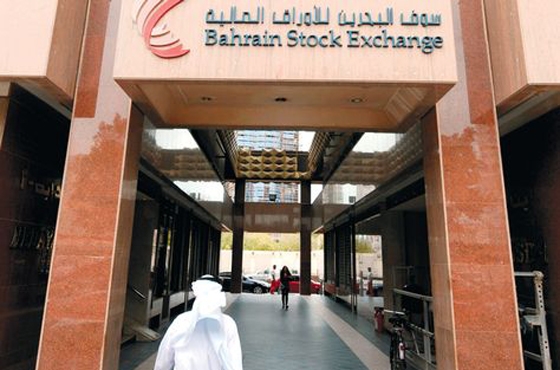A push to bring new products and services to the stock market is being steered by the Central Bank of Bahrain (CBB), which regulates the country’s financial services industry. The launch comes against a backdrop of reforms, which marks part of a broader, two-pronged bid to strengthen the position of the Bahrain Bourse (BHB) at home and boost its appeal abroad.
Addressing a regional equities summit in Manama recently, Rasheed Al Maraj, governor of the CBB, said the bank had increased its focus on broadening the product range and reinforcing capital market security.
The CBB is encouraging the BHB to adopt initiatives aimed at improving market liquidity and depth, he added, while providing a diversified, fair and transparent environment for public investors. Al Maraj told attendees at the April summit that the bank was looking to set up a disclosure and corporate governance-based monitoring framework for the supervision of listed companies and other securities in order to support its efforts. “The bourse has been working closely with the regulator in introducing new products and services and coordinating with industry stakeholders in enhancing market infrastructure,” Al Maraj said.
The CBB’s governor is confident that increased stability, strength and credibility will produce a raft of opportunities for growth. “In order for the capital market to remain effective and efficient, it should continue to build and enhance liquidity, depth and diversification in terms of investment instruments, listings and capital flow at the regional and international levels,” he said.
REIT interest
Real estate investment trusts (REITs) are expected to be high on the list of new products generating interest in the market. These are securities that sell like a stock on the major exchanges and invest in real estate, either through properties or mortgages. Confidence is high that these new vehicles will facilitate investment in assets and provide much needed liquidity in the market.
Hani Al Mandeel, the BHB’s director of marketing and business development, said that REITs have plenty to offer investors, including an alternative investment asset class and access to ownership in large, high-value real estate projects. “Typical REIT portfolios include high-income-generating properties such as shopping malls, offices, hotels, health care [facilities] and industrial [operations],” he told a press conference on May 17, the same day that the listing rules for REITs were announced.
Nevertheless, the launch of REITs has been a lengthy process. Early preparation in 2006 saw the introduction of the Financial Trust Law, which laid some of the regulatory groundwork for property-based investment trusts. However, the global financial crisis led to the initiative being put aside until recently, when rising demand for new investment vehicles, in conjunction with an upturn in the property market, convinced the CBB that the time was right to finalize the REIT governing regulations.
Under the framework set out by the BHB, a REIT offering must be valued at BD7.4m ($19.5m) or more, while the dividend payout ratio of the trust’s net realized income has to be at least 90%. The regulations allow for both foreign REITs and those launched domestically to be listed on the market, with these open to both local and overseas investors. All REITs are obliged to publish their investor reports on the BHB’s website, while transactions must be in line with CBB and market regulations.
More reforms on the way
Earlier in the year, the CBB flagged other areas in the financial sector where regulatory reforms were to be enacted, including both the conventional and takaful (sharia-compliant) insurance industry. Reforms aim to bolster risk management and governance requirements, alongside the introduction of new avenues for Islamic retail banks to utilize excess liquidity through short-term investments.
In what marked a first for the region, January saw the BHB launch a new offering that allows both individual investors and institutions to directly purchase government bonds and sukuk (Islamic bonds) from the primary market via licensed brokers. Increasing access to government debt marks a further bid to extend the reach of the BHB outside of Bahrain.
While foreign investors may adopt a “wait and see” approach when the first REITs are listed, experts expect both these and other new products to play their part, over time, in strengthening the bourse’s appeal as an investment destination.
Oxford Business Group
22 June







































































